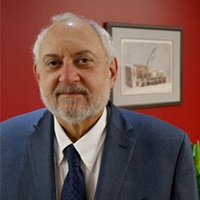Chateauguay Estate Lawyer, Quebec
F. S. Liverman
✓ VERIFIEDAccident & Injury, Criminal, Divorce & Family Law, Estate, Real Estate
Trial Lawyer
F.S. Liverman, a member of the Bar since 1974, is a third generation lawyer whose grandfather started practicing in 1921. All were graduates of law a... (more)
Stephan Fuchs
Civil Rights, Family Law, Trusts, Labor Law
Status: In Good Standing Licensed: 40 Years
Marie-Laurence Morin
Estate, Civil Rights, Family Law, Mediation
Status: In Good Standing Licensed: 23 Years
Marion Dana
Estate, Civil Rights, Family Law, Landlord-Tenant
Status: In Good Standing Licensed: 19 Years
Maria Kuchel
Business, Insurance, Estate Planning, Business & Trade
Status: In Good Standing Licensed: 38 Years
Sandra Tabori
Administrative Law, Merger & Acquisition, Trusts, Tax
Status: In Good Standing Licensed: 25 Years
Gérald A. Ponton
Estate, Real Estate, Business, Commercial Real Estate
Status: In Good Standing Licensed: 52 Years


